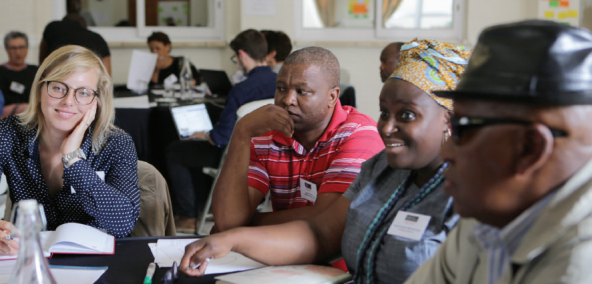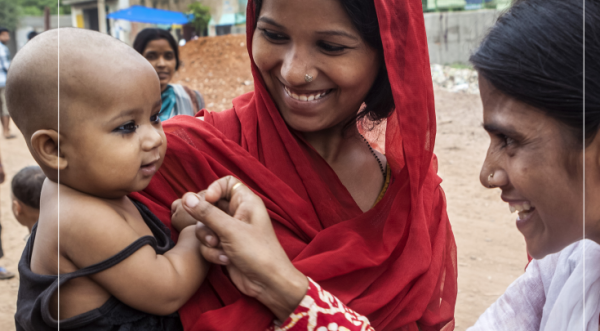Learning with others, learning about our own practice, and learning through research are three important routes to deepening understanding of governance change.
Our highlighted publications this month reflect these three routes.
An event report from a peer learning space in South Africa offers insights on building a culture of continuous learning to foster innovation in the fields of transparency and accountability. A report from a practitioner learning project by two East African NGOs working with citizen-generated data offers reflections on the conditions under which such data adds value to their efforts to increase government responsiveness and accountability for resource allocation and service delivery. And a research report on social accountability summarises current concepts and issues in the theory and practice of social accountability in health and nutrition systems in South Asia.
Each of these outputs from different learning processes contributes to our understanding of what works and what doesn’t in tech-enabled attempts to make governance systems more open, effective and responsive.
I know what I know (but how do I know what I don’t?)
The Making All Voices Count South Africa community of practice is a peer learning group whose members share a vision for transparent governance systems that respond readily and appropriately to the needs of citizens. It has met regularly for three years. At each meeting, members learn together about an aspect of their collective work on innovation, technology, transparency and accountability. In November 2016, they held a learning event to draw together their reflections on three basic learning areas in technology for transparency and accountability initiatives: people, technology and process.
Accountability work is about seeing change for the better for the people we are working with and for, and in the governance structures accountable to those people. A learning culture grows change. If there is no change, it is very likely that whatever you are doing is not working.

Miriam Waltz (Sustainable Livelihoods Foundation), Jerry Kole (Maokeng Advice Offi ce/Free State Housing Campaign), Nontando Ngamlama (Afesis Corplan), Sam Mosikili (Qholaqhwe Advice Office/Free State Housing Campaign) during a South Africa Community of Practice Workshop.
Read the event report | Read a blog from the first year of the South Africa community of practice | Learn more about our projects in South Africa | Read our 2016 publication Learning for Change in Accountable Governance Programming
Citizen-generated data and sustainable development
This report contributes evidence on how citizen-generated data initatives contribute to change in the development context. It discusses community resource trackers in Uganda and a school scorecard initiative in Kenya, demonstrating that citizens - individuals and communities - are important agents in the data revolution, as active users, producers and intermediaries of development data and information.
Read the research report | Read a project blog on citizen-generated data in the information ecosystem
Social accountability initiatives in health and nutrition: lessons from India, Pakistan and Bangladesh

A range of accountability initiatives has been implemented in South Asia to improve service delivery in the health and nutrition sectors. This report contrasts the theory and practice of social accountability approaches to health service delivery with the ‘standard model’ of political and administrative accountability, and the assumptions that underpin it. The report highlights a set of four key things to consider in designing and analysing social accountability programmes in the health and nutrition sector, relating to: community heterogeneity; collective action; relationships between community and frontline providers; and clientelism.
Read the research report
Other new publications and research blogs
Blog: Voice in the Indian context: Furthering accountabilty (Deepti Bhartur)
Related content
-
BLOG | March 21, 2017
Citizen-generated data in the information ecosystem -
PUBLICATION | April 19, 2017
Citizen-generated data and sustainable development -
PUBLICATION | March 31, 2017
I know what I know (but how do I know… -
PUBLICATION | October 11, 2016
Learning for change in accountable governance programming -
PUBLICATION | April 20, 2017
Social accountability initiatives in health and nutrition: lessons from India,… -
PUBLICATION | March 29, 2017
Faith, empowerment, church and community mobilisation advocacy: insights from Tearfund’s… -
BLOG | April 5, 2017
Voice in the Indian context: furthering accountability -
BLOG | March 28, 2017
Whose voice really counts? Machine politics and citizen voice aggregation…